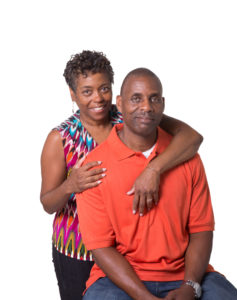Treatment Options For 0.3 cm – 0.4 cm UPJ Stones: Experienced Urologists in NYC
If you have any questions, to schedule a consultation or if you need a second opinion, please contact us or call: 646-663-4421
Dr. Alex Shteynshlyuger is a board certified urologist in NYC who specializes in treating men and women with kidney stones and ureteral stones.
Treatment of small 1-4 mm stones at UPJ (Ureteropelvic junction):
 It is fairly uncommon for stones smaller than 5 mm to block the UPJ but it does happen occasionally. Whenever stones smaller than 3mm-4mm block the UPJ, the patient needs to be evaluated whether he or she has an associated ureteral narrowing called “UPJ obstruction”.
It is fairly uncommon for stones smaller than 5 mm to block the UPJ but it does happen occasionally. Whenever stones smaller than 3mm-4mm block the UPJ, the patient needs to be evaluated whether he or she has an associated ureteral narrowing called “UPJ obstruction”.
Small Stones at UPJ Can often Pass Spontaneously
Smaller stones that are less than 3-5 mm in size have a better chance of passing spontaneously. Stones less than 2 mm rarely get stuck at UPJ. If imaging shows a 3-5 mm stone obstructing the junction of the kidney and the ureter, observation is a reasonable option. Often, small stones less than 5-6 mm will pass with conservative therapy.
While some patients with small stones 2-3 mm in size, may experience slight discomfort or pain when the stone passes, many patients may remain completely unaware of the stone passing spontaneously and never seek care.
When Surgical Treatment is Necessary for small UPJ Stones?
If no infection is present, observation is a reasonable option and the patient may be able to pass the stone spontaneously. As many as 60-85% of small stones at UPJ may be passed spontaneously.
If infection is present, infection must first be treated urgently before any procedure to break the stone can be performed. It may be necessary to place a stent in the ureter to keep it open while the infection is being treated.
If kidney function is compromised by kidney stone, urgent treatment is necessary.
If the patient is experiencing recurrent pain or has nausea and vomiting and cannot tolerate a diet, then an intervention is reasonable. The choice of treatment, shockwave lithotripsy, JJ stent insertion or one-step ureteroscopy with Holmium laser and JJ stent insertion is chosen based on patient parameters and preferences.
If a patient has recurrent pain and the stone is not coming down on its own, it may be reasonable to do shock-wave therapy (ESWL). ESWL is the first choice of treatment for UPJ stones that are 4 mm – 5 mm in diameter. Shockwave lithotripsy has fewer complications than ureteroscopy and has similar success rates up to 90% for small UPJ stones. Shockwave is a less invasive procedure than ureteroscopy.
For some patients ESWL is not an option if the stone cannot be seen on X-rays or on ultrasound which is a common situation with small UPJ stones. In that case ureteroscopy is the procedure of choice.
Ureteroscopy with Holmium laser lithotripsy is also an option. Although it has a little higher risk of side effects, the chances of breaking the stone completely are also greater. For a UPJ stone less than 5 mm in size, both ESWL and ureteroscopy with Holmium laser lithotripsy have good stone fragmentation rates. Following ureteroscopy, usually a ureteral stent is left behind for a few days to a week.
Ureteroscopy Vs Shockwave Lithotripsy For Small UPJ Stones
The choice of treatment between ESWL and ureteroscopy depends on the patient’s characteristics as well. For example, obese patients are less likely to benefit from ESWL and may be better suited to ureteroscopy.
Small stones at UPJ may be difficult to see on X-rays or ultrasound and shockwave lithotripsy may not be an option for this reason.
Patient who take blood thinners are not good candidates for ESWL.
Recovery is a little faster after ESWL which is less invasive compared to ureteroscopy. Most people are able to return to and regular activities in 1-2 days after either ESWL or ureteroscopy.
After either shock-wave lithotripsy or ureteroscopy, patients might have some blood in the urine (pink urine) for a few days. Some soreness may be present at the site where ESWL is done or at the urethra for a few days after the ureteroscopy procedure.
If you have any questions, to schedule a consultation for treatment of kidney stones or if you need a second opinion, please contact us or call: 646-663-4421
Dr. Alex Shteynshlyuger is a board certified urologist in NYC who specializes in treating men and women with kidney stones and ureteral stones. He has treated hundreds of men and women with large kidney stones.
